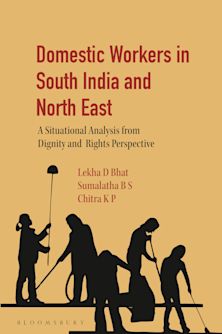- Home
- ACADEMIC
- Sociology
- Sociology - Other
- Identity Building among Role-Playing Gamers
Identity Building among Role-Playing Gamers
Slaying Goblins in the Real World
Identity Building among Role-Playing Gamers
Slaying Goblins in the Real World
You must sign in to add this item to your wishlist. Please sign in or create an account
Description
Drawing on 19 months of participant-observation and 20 in-depth interviews with players, Heather Shay demonstrates that gamers derive significant social and psychological benefits from table-top role-playing games-not least in that players often feel the hobby makes them better people.
Playing these games allow players to depict themselves as good, moral actors through their in-game actions as well as by making the game enjoyable for their fellow players in real life. Table-top role-playing games also serve a psychological function by allowing participants to take imaginary risks with their characters, which in turn make them feel more alive than their everyday experiences allow them to. As they pretend to be fictional characters in fictional worlds, players use these games to create identities that make their lives more meaningful.
Table of Contents
Acknowledgments
Introduction
Chapter 1: Becoming a Good Gamer
Chapter 2: Valorizing Non-Competitive Gamers
Chapter 3: Celebrating Intelligent & Creative Gamers
Chapter 4: Not Becoming a Good Gamer
Chapter 5: Edgework without the Edge
Chapter 6: Rewards for Playing on the Edge
Chapter 7: Playing Without the Edge
Chapter 8: Fictive Heroism
Chapter 9: How to Make a Hero
Chapter 10: Feeling Like a Hero
Conclusion
Appendix
References
Index
About the Author
Product details

| Published | 13 Nov 2025 |
|---|---|
| Format | Ebook (Epub & Mobi) |
| Edition | 1st |
| Extent | 144 |
| ISBN | 9781978769885 |
| Imprint | Bloomsbury Academic |
| Publisher | Bloomsbury Publishing |
About the contributors
Reviews
-
While there are several books about how to create and manage TTRPGs, this book goes beyond that into the minds of the players themselves. It's quite timely for anyone who wants to understand the appeal of these games, how they differ from video games, and how they intersect with player identities.
Katryna Starks, University of Illinois, Urbana-Champaign
-
This study provides insight into how fantasy role-playing gamers construct and then negotiate what it means to be a “good gamer.” Shay's focus on players' construction of moral identities highlights that roleplaying and gaming do not occur only within a fantasy realm or a “magic circle” that is separated from everyday life but rather is finely integrated with it.
J. Patrick Williams, Nanyang Technological University
-
Identity Building among Role-Playing Gamers: Slaying Goblins in the Real World is a compelling sociological analysis of tabletop role-playing games, exploring how players construct moral identities, engage in collaborative creativity, and experience risk in fictional worlds. Based upon rigorous research and rich ethnographic detail, this book makes a significant contribution to our understanding of gaming as a social practice. It is essential reading for scholars of gaming, identity, and subcultures.
Garry Crawford, University of Salford; author of Video Games as Culture: Considering the Role and Importance of Video Games in Contemporary Society

ONLINE RESOURCES
Bloomsbury Collections
This book is available on Bloomsbury Collections where your library has access.


































